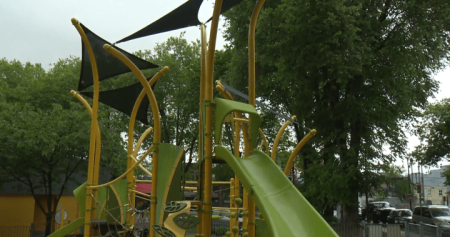Vincent Montambeault, a first-time dad, and his girlfriend were scammed while trying to buy a stroller for their four-month-old baby. They found an Uppababy Vista 1 stroller online and drove to Montreal to purchase it, only to discover that the stroller they received was not in the condition advertised. Montambeault admits to not doing his due diligence in inspecting the stroller before buying it, and when he tried to contact the seller afterwards, he realized he had been blocked. This prompted him to speak out about his experience after seeing a complaint online about the same seller.
Emma Austin, another victim of the same scam, also saw an ad for an Uppababy stroller that was advertised as “basically brand new.” Despite asking the seller if there were any issues with the stroller before purchasing it, Austin and her husband discovered several problems with it after the sale was completed. The seller blocked Austin after the sale, preventing her from leaving a review and making it difficult to seek recourse. Austin decided to post her own ad recounting her experience, which led to others coming forward with similar stories of being scammed by the seller.
Sylvie de Bellefeuille, a lawyer with Option Consommateurs, explained that in person-to-person transactions like these, it is often a case of buyer beware. She highlighted the challenges of pursuing legal action in these situations, as sellers can easily disappear after the sale, leaving buyers with little recourse. De Bellefeuille advised that buyers should try to obtain proof of purchase, such as the seller’s name and the amount paid, to facilitate any potential legal action. However, without a valid address or working email, pursuing recourse can be difficult.
Despite considering small claims court, Emma Austin ultimately decided against it, not wanting to add to her stress, especially while being pregnant. De Bellefeuille emphasized the importance of conducting thorough research before making purchases in person-to-person transactions, especially for high-value items like baby gear. Both Austin and Montambeault stressed the importance of inspecting items carefully before purchasing them, as well as verifying the legitimacy of the seller. Montambeault acknowledged his mistake in not properly inspecting the stroller before buying it, and hopes to warn others to be more cautious in similar situations.
In conclusion, the experiences of Montambeault and Austin serve as cautionary tales for buyers in person-to-person transactions, particularly when purchasing high-value items like baby gear online. It is essential to conduct thorough research, inspect items carefully before purchasing, and ensure the legitimacy of the seller to avoid falling victim to scams. While legal recourse may be challenging in such situations, being diligent and cautious can help prevent being taken advantage of by fraudulent sellers. Both Montambeault and Austin have learned valuable lessons from their experiences and hope to raise awareness to prevent others from facing similar scams.















